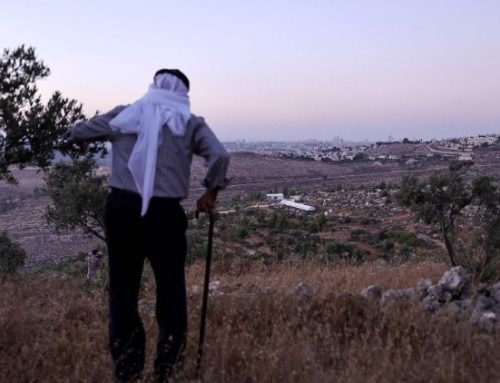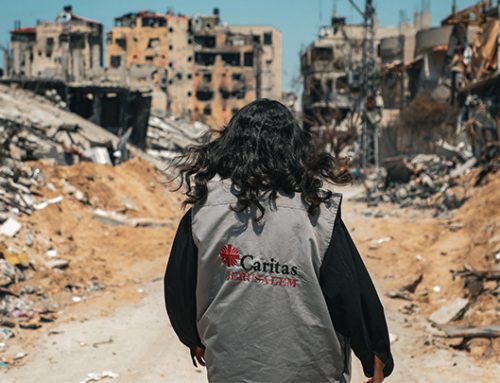A key report just released from the UN Office of the Coordination of Humanitarian Assistance cites 150 pages of documentation that the unrelenting expansion of Israel’s settlement enterprise – despite repeated international calls to stop the illegal activity – has left the Palestinian territories in a fragmented, economically unsustainable state and probably precludes any hope of a viable two-state solution.
A key report just released from the UN Office of the Coordination of Humanitarian Assistance cites 150 pages of documentation that the unrelenting expansion of Israel’s settlement enterprise – despite repeated international calls to stop the illegal activity – has left the Palestinian territories in a fragmented, economically unsustainable state and probably precludes any hope of a viable two-state solution.
Unless the problems caused by the existence and expansion of settlements are addressed, the dismal humanitarian outlook for Palestinians will intensify.
Moreover, the socio-economic and even the territorial basis for a sustainable long-term solution will also remain elusive.
The construction and growth of Israeli settlements have also been acknowledged as a fundamental obstacle to peace by the international community. For example, in his final report on the Middle-East in December 2006, then UN Secretary-General Kofi Annan concluded that
"…Israel’s central failure lay in not halting the settlement enterprise, even though this is a clear phase I obligation under the road map. The continuation and even consolidation of Israeli settlements and related infrastructure on occupied land are the main reasons for the mistrust and frustration felt by ordinary Palestinians, which often find their outlet in violence of one form or another”.
In April 2006, Annan had called upon Israel “to cease settlement activity and other actions that could prejudice final status issues, and encourage it to recognize that a peaceful solution in the conflict cannot be imposed unilaterally or outside the framework of a comprehensive regional peace”.
Professor John Dugard, Special Rapporteur on the Situation of Human Rights in the Palestinian Territories Occupied Since 1967, concluded that settlements represent a new form of colonialism. His January 2007 report found that “Today there are over 460,000 Israeli settlers in the West Bank and East Jerusalem. Moreover, Israel has appropriated agricultural land and water resources in the West Bank for its own use. This aspect of Israel’s exploitation of the West Bank appears to be a form of colonialism of the kind declared to be a denial of fundamental human rights and contrary to the Charter of the United Nations as recalled in the General Assembly’s Declaration on the Granting of Independence to Colonial Countries and Peoples of 1960 (Resolution 1514 XV).”





